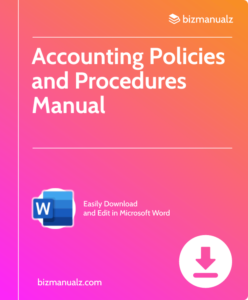What are Commonly Followed Accounting Rules and Standards in Canada?

Accounting rules in Canada are essential for keeping financial information accurate and transparent. These standards guarantee that organizations stay within the GAAP (Generally Accepted Accounting Principles) guidelines, promoting fair and reliable reporting. What are commonly followed accounting rules and standards in Canada?
Accounting Rules in Canada
In Canada, accounting rules dictate the standards and practices businesses must follow for financial reporting. This ensures consistency, transparency, and accuracy in their records and presentations.
The Accounting Standards Board (AcSB) heads up Canadian accounting standards. They maintain the GAAP, which give a structure to financial statements. This framework is vital for showing and organization’s financial position accurately.
Canadian accounting standards are also aligned with international ones. In the past few years, there has been and effort to make Canadian GAAP similar to International Financial Reporting Standards (IFRS). This helps companies that operate globally, as they can use consistent accounting principles.
Regulatory bodies, like the Canadian Securities Administrators (CSA), are in charge of overseeing accounting practices in Canada. They check that public companies comply with securities laws, protect investor interests, and maintain market integrity.
Let me tell you a story about accounting rules in Canada. A couple of years ago, a company was scrutinized when differences were found in its financial reports. An audit revealed that certain expenses were incorrectly listed or not included at all. This led to a deep examination by regulatory authorities, resulting in heavy penalties for the company and loss of investor trust.
Let’s take a closer look at the specifics of Canadian accounting rules:
- IFRS (International Financial Reporting Standards) – these globally recognized standards provide a foundation for financial reporting in Canada.
- ASPE (Accounting Standards for Private Enterprises) – these are applicable to non-publicly accountable businesses. They simplify accounting procedures and reduce complexity for smaller entities.
- CPA Handbook – this covers various topics like ethics, assurance, and accounting standards for different industries and business types.
- CAS (Canadian Auditing Standards) – this establishes guidelines for auditors to maintain audit quality and independence during the process.
In addition, there are specific principles related to revenue recognition, expense allocation, asset valuation, and liability recognition.
Pro Tip: Understand CPA Canada’s accounting rules and be sure to comply with them for accurate financial records. Understanding the differences between GAAP, IFRS, and ASPE is essential for financial reporting success.
Key Differences Between GAAP, IFRS, and ASPE
GAAP, IFRS, and ASPE are the accounting standards in Canada. Let’s compare them.
| GAAP | IFRS | ASPE | |
|---|---|---|---|
| Purpose | Local markets | Global trade | Small businesses |
| Reporting | Rule-based | Principle-based | Principle-based |
| Financials | Multiple statements | Single statements | Multiple statements |
| Inventory | LIFO or FIFO | FIFO | FIFO |
| Research Costs | Expensed | Capitalized | Expensed |
GAAP is for local markets. It’s more flexible than IFRS and ASPE. IFRS is for global trade. It has one set of high-quality financial reporting standards. ASPE is for small businesses. It’s simpler and cost-effective.
Canada’s accounting rules are strict. Auditors need a calculator and humor to handle all the regulatory bodies.
Regulatory Bodies Overseeing Accounting Standards
In Canada, regulators play a crucial role in ensuring that accounting standards are followed and financial reports are honest and clear. Here are the main regulatory bodies:
| Regulatory Body | Role |
| 1. Canadian Accounting Standards Board (AcSB) | Sets accounting standards for private entities. |
| 2. Public Sector Accounting Board (PSAB) | Makes accounting rules for government organizations and public sector entities. |
| 3. Auditing and Assurance Standards Board (AASB) | Specifies standards for auditing and related services in Canada. |
| 4. Canadian Securities Administrators (CSA) | Monitors securities regulation in Canada. Ensures accurate financial reports by publicly-traded companies. |
Additionally, provincial regulators also contribute to overseeing accounting standards. These bodies work together with federal regulators to maintain consistency and effectiveness in accounting practices.
Pro Tip: Auditors play a key role in following accounting standards. It is important to stay updated with revisions and new standards from the regulators, as numbers can be deceptive, just like certain individuals who fail to pay their share of the dinner bill.
Role of Auditors in Ensuring Compliance with Accounting Standards
Financial Auditors have a vital role in guaranteeing compliance with accounting regulations. They are responsible for assessing financial statements and internal controls of and organization. Through audits, they offer assurance to stakeholders that the financial reports presented are precise and follow the applicable accounting standards.
To execute their duties, auditors use a systematic approach. First, they plan the audit and gain comprehension of the entity’s business and industry.
This helps them to identify potential risks and areas that need further attention during the audit process. Auditors then evaluate the controls in place to curb these risks, making sure they are well-designed and running proficiently.
In the audit fieldwork, auditors collect evidence through various procedures such as inspecting documents, reconciling accounts, confirming balances with third parties, and testing transactions. This enables them to form and opinion on whether the financial statements are free from material misstatements due to errors or fraud.
Auditors also analyze management’s estimates and judgments used in creating the financial statements. This covers evaluating whether these estimates are appropriate and backed by sufficient documentation and assumptions.
After completing the fieldwork, auditors summarize their findings and communicate them to management and those charged with governance. They provide suggestions for enhancing internal controls or addressing any flaws identified during the audit process.
Don’t miss out on the advantages of accurate financial information! Join forces with auditors to guarantee compliance with accounting rules and uphold credibility in your reporting practices. By working together, you can gain useful insights into your business operations while fulfilling regulatory requirements efficiently. Also, precise financial reporting builds trust among stakeholders and boosts your organization’s reputation in the market. So take advantage of this partnership and unlock the potential for growth and success!
Impact of Accounting Rules on Financial Reporting: Be prepared, because these rules can make the most honest of accountants into imaginative storytellers.
Impact of Accounting Rules on Financial Reporting
Accounting rules profoundly affect financial reporting, regulating the methods and principles to be followed. Let us investigate the main aspects influenced by these rules.
Impact of Accounting Rules on Financial Reporting:
| 1. Accurate Representation: | The rules guarantee that financial statements give and honest and objective view of a company’s financial position. |
| 2. Consistency: | Standardized regulations promote consistency in reporting, simplifying the comparison of results over time. |
| 3. Transparency: | The rules strive to supply clear and complete data, enabling users to make informed choices. |
The influence extends beyond presentation standards. These rules have a vital role in regulatory compliance and sustaining investor trust.
Pro Tip: To ensure conformance with accounting rules, stay updated with any amendments or updates issued by pertinent accounting organizations. Accounting standards in Canada keep changing, making it more difficult to stay abreast than understanding and archaic hieroglyph.
Recent Updates and Developments in Canadian Accounting Standards
Recently, Canada’s Accounting Standards have seen a range of noteworthy updates and developments. Aiming to improve financial reporting accuracy and transparency, these standards address leases, financial instruments, and revenue recognition. By applying these updates, businesses are better equipped to supply reliable info to stakeholders.
These new standards build on existing frameworks and regulations, adapting to changes in business practices and tech. They strive to align with global best practices, promoting uniformity and comparability across industries.
CPA Canada – the governing body – regularly keeps track of global accounting trends and evaluates their applicability to Canada. This guarantees that Canadian companies are always up-to-date with emerging financial reporting issues.
In conclusion, keeping up with evolving accounting standards is crucial for businesses in Canada. Following these rules not only increases transparency but also builds trust among investors and stakeholders. Wrap up your accounting confusions, because now you know the Canadian rules and standards – just don’t let your creativity become and expense!
Accounting Rules and Standards in Canada
We have reached the end of this conversation about accounting standards in Canada. These rules are essential for transparency and accuracy in financial records. Companies must observe Canadian GAAP and IFRS to guarantee their financial statements are comparable and consistent. Topics like revenue recognition, inventory valuation, lease accounting, and financial statement presentation are all included.
The Chartered Professional Accountants of Canada (CPA Canada) provides publications and resources to help professionals understand accounting standards. This ensures they have the latest info and best practices available.
Businesses in some sectors must also follow specific regulations. Banking, insurance, and mining are just a few examples. Companies in these industries must be aware of any changes in rules relevant to them.
Continuing education for professionals is beneficial to stay informed of the evolving regulations. This helps accountants address challenges and supply accurate financial info to stakeholders.
Professional judgment and compliance are necessary when using accounting rules. Consult experts if the regulations are complex.
Frequently Asked Questions

Q: What accounting rules and standards are commonly followed in Canada?
A: In Canada, the most commonly followed accounting rules and standards are set by the Canadian Institute of Chartered Accountants (CICA), which is now known as the Chartered Professional Accountants of Canada (CPA Canada). The main rulebook is the CPA Canada Handbook, which includes the International Financial Reporting Standards (IFRS) as adopted by the Accounting Standards Board (AcSB) of CPA Canada.
Q: What is the purpose of following accounting rules and standards?
A: Following accounting rules and standards ensures consistency, comparability, and transparency in financial reporting. These rules provide guidance on how to recognize, measure, present, and disclose financial information accurately, ensuring that businesses and organizations adhere to ethical and legal accounting practices.
Q: Can you give examples of specific accounting rules and standards in Canada?
A: Some examples of specific accounting rules and standards in Canada include the measurement and recognition of assets, liabilities, revenues, and expenses; the rules for presenting financial statements such as the balance sheet, income statement, and cash flow statement; and disclosure requirements for significant accounting policies and judgments.
Q: Are Canadian accounting rules different from international accounting standards?
A: Canadian accounting rules are aligned with the International Financial Reporting Standards (IFRS). Although Canadian accounting standards are based on IFRS, there may be certain differences or additional requirements specific to Canada. These differences are set out in the CPA Canada Handbook, ensuring a harmonized approach to financial reporting with global standards.
Q: Who is responsible for setting accounting rules and standards in Canada?
A: The Accounting Standards Board (AcSB) of CPA Canada is responsible for setting accounting rules and standards in Canada. The board comprises professionals with expertise in accounting, auditing, and financial reporting. They work closely with international standard-setting bodies to ensure the Canadian standards remain consistent with global accounting practices.
Q: How can businesses stay updated with the latest accounting rules and standards in Canada?
A: Businesses can stay updated with the latest accounting rules and standards in Canada by regularly referring to the CPA Canada Handbook. CPA Canada also provides updates, interpretations, and guidance through publications, webinars, conferences, and professional development courses. Engaging with professional accountants and industry associations is also a valuable way to stay informed.

















Leave a Reply